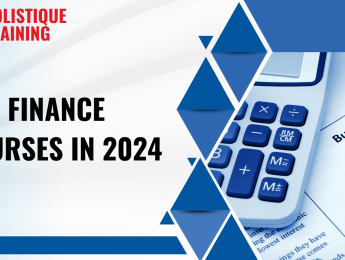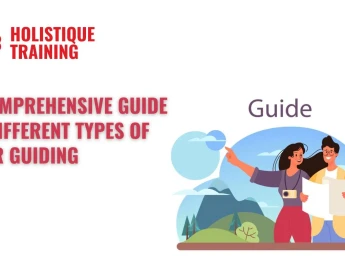- Table of Contents
- Introduction
- 1. Corporate Finance Essentials by Coursera (offered by IESE Business School)
- 2. Financial Markets by Coursera (offered by Yale University)
- 3. Investment and Portfolio Management by Coursera (offered by Rice University)
- 4. Financial Engineering and Risk Management by Coursera (offered by Columbia University)
- 5. A Finance Masterclass For Engineers, Project & Technical Managers by Holistique Training
Introduction
In today's interconnected global economy, understanding finance is crucial for personal and professional success. Finance, the science of managing money, encompasses a broad range of activities such as investing, borrowing, lending, budgeting, saving, and forecasting. It plays a pivotal role in the functioning of businesses, governments, and individual households. Learning finance equips individuals with the knowledge and skills to make informed decisions about resource allocation, risk management, and wealth maximization. Whether you're managing personal finances, steering a business toward growth, or shaping economic policies, a solid grasp of financial principles is indispensable. Moreover, the ability to interpret financial statements, understand market dynamics, and evaluate investment opportunities opens up a plethora of career opportunities in sectors such as banking, investment, corporate finance, and consulting. As technology continues to evolve and financial markets grow more complex, the demand for financial literacy and expertise is higher than ever, making finance a vital field of study for anyone looking to thrive in the modern world.
1. Corporate Finance Essentials by Coursera (offered by IESE Business School)
Duration: Approximately 15 hours
Language: English
Level: Beginner
What does a Corporate Finance Essentials Course teach you?
- This course covers the basics of corporate finance, including financial statement analysis, investment decision-making, risk management, and valuation techniques.
Who should take the Corporate Finance Essentials course?
- This course is ideal for beginners, including students, professionals transitioning into finance roles, and entrepreneurs looking to understand the financial aspects of running a business.
Why should you take the Corporate Finance Essentials course?
- It provides a solid foundation in corporate finance, making it easier to understand complex financial concepts and decisions. Additionally, it is taught by a reputable business school, adding credibility to the learning experience.
2. Financial Markets by Coursera (offered by Yale University)
Duration: Approximately 33 hours
Language: English
Level: Intermediate
What does a Financial Markets Course teach you?
- This course explores the functioning of financial markets, the role of financial institutions, and the regulatory environment. Topics include risk management, behavioral finance, and the principles of asset valuation.
Who should take the Financial Markets course?
- This course is suited for intermediate learners, including finance professionals, policymakers, and anyone with a basic understanding of finance looking to deepen their knowledge of financial markets.
Why should you take the Financial Markets course?
- The course is taught by Nobel Laureate Robert Shiller, providing insights from one of the leading experts in the field. It also covers a broad range of topics relevant to understanding the complexities of financial markets.
3. Investment and Portfolio Management by Coursera (offered by Rice University)
Duration: Approximately 19 hours
Language: English
Level: Intermediate
What does an Investment and Portfolio Management Course teach you?
- This course covers investment strategies, portfolio construction, asset allocation, and risk management. It also delves into performance evaluation and the use of financial instruments to achieve investment goals.
Who should take the Investment and Portfolio Management course?
- This course is designed for intermediate learners, including investment professionals, financial advisors, and individuals looking to manage their own investment portfolios effectively.
Why should you take the Investment and Portfolio Management course?
- It provides practical knowledge and tools for managing investments and portfolios, helping learners to optimize returns while managing risks. The course is also backed by Rice University's strong academic reputation.
4. Financial Engineering and Risk Management by Coursera (offered by Columbia University)
Duration: Approximately 33 hours
Language: English
Level: Advanced
What does a Financial Engineering and Risk Management Course teach you?
- This course focuses on quantitative finance techniques, including derivatives pricing, risk modeling, and the application of statistical and computational methods in finance.
Who should take the Financial Engineering and Risk Management course?
- This course is tailored for advanced learners, including finance professionals, quantitative analysts, and students pursuing a career in financial engineering or risk management.
Why should you take the Financial Engineering and Risk Management course?
- It equips learners with advanced skills in quantitative finance and risk management, which are highly valued in the finance industry. The course's association with Columbia University adds significant value to the certification.
5. A Finance Masterclass For Engineers, Project & Technical Managers by Holistique Training
Summary: In this course participants will learn to analyze and interpret financial statements, understand common costing practices, and grasp cost behavior. The course will build confidence in selecting and implementing the best estimation techniques, producing cash flow forecasts with effective tools, and using Excel to create investment appraisal models. Additionally, participants will gain skills in preparing and presenting capital investment appraisals, enabling them to manage projects with a strong financial foundation.
Duration: 5 days
Language: English
Level: Intermediate to Advanced
What does a Finance Masterclass For Engineers, Project & Technical Managers Course teach you?
- This course teaches participants to analyze and interpret financial statements, understand common costing practices, grasp cost behavior, select and implement the best estimation techniques, produce cash flow forecasts using effective tools, create investment appraisal models in Excel, and prepare and present capital investment appraisals.
Who should take the Finance Masterclass For Engineers, Project & Technical Managers course?
- Engineers, project managers, technical managers, and other professionals in technical fields who need to develop financial acumen to manage projects effectively and make informed financial decisions should take this course.
Why should you take the Finance Masterclass For Engineers, Project & Technical Managers course?
- The course bridges the gap between technical expertise and financial management, empowering technical professionals to manage budgets, control costs, and make financially sound decisions in their projects. It ensures participants can immediately apply what they learn to their work environments, enhancing their ability to manage projects with a strong financial foundation.
Table: Summary of Top Finance Courses in 2025
Course Name | Duration | Language | Level |
Corporate Finance Essentials (IESE Business School, Coursera) | Approximately 15 hours | English | Beginner |
Financial Markets (Yale University, Coursera) | Approximately 33 hours | English | Intermediate |
Investment and Portfolio Management (Rice University, Coursera) | Approximately 19 hours | English | Intermediate |
Financial Engineering and Risk Management (Columbia University, Coursera) | Approximately 33 hours | English | Advanced |
A Finance Masterclass For Engineers, Project & Technical Managers (Holistique Training) | 5 days | English | Intermediate |

























